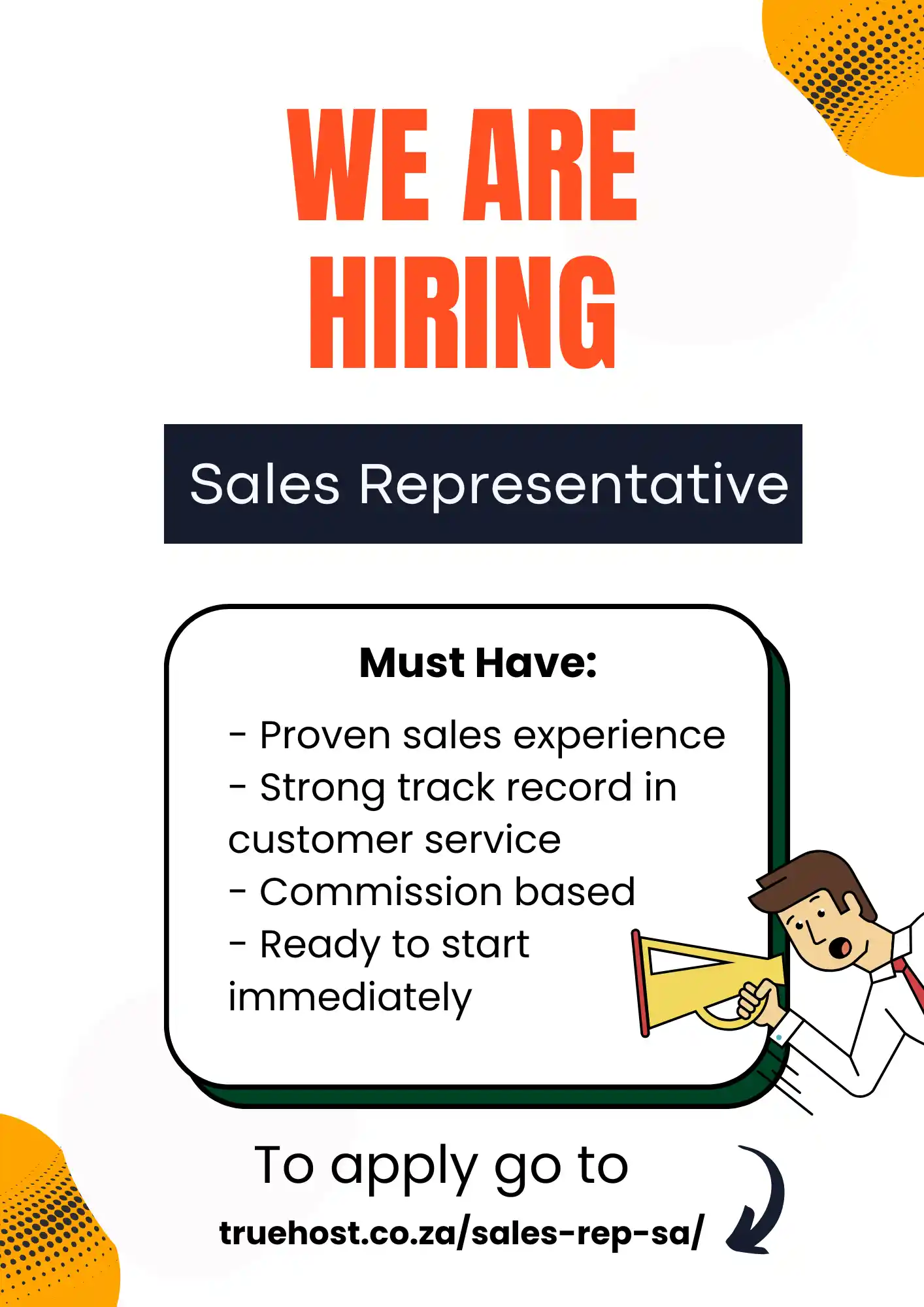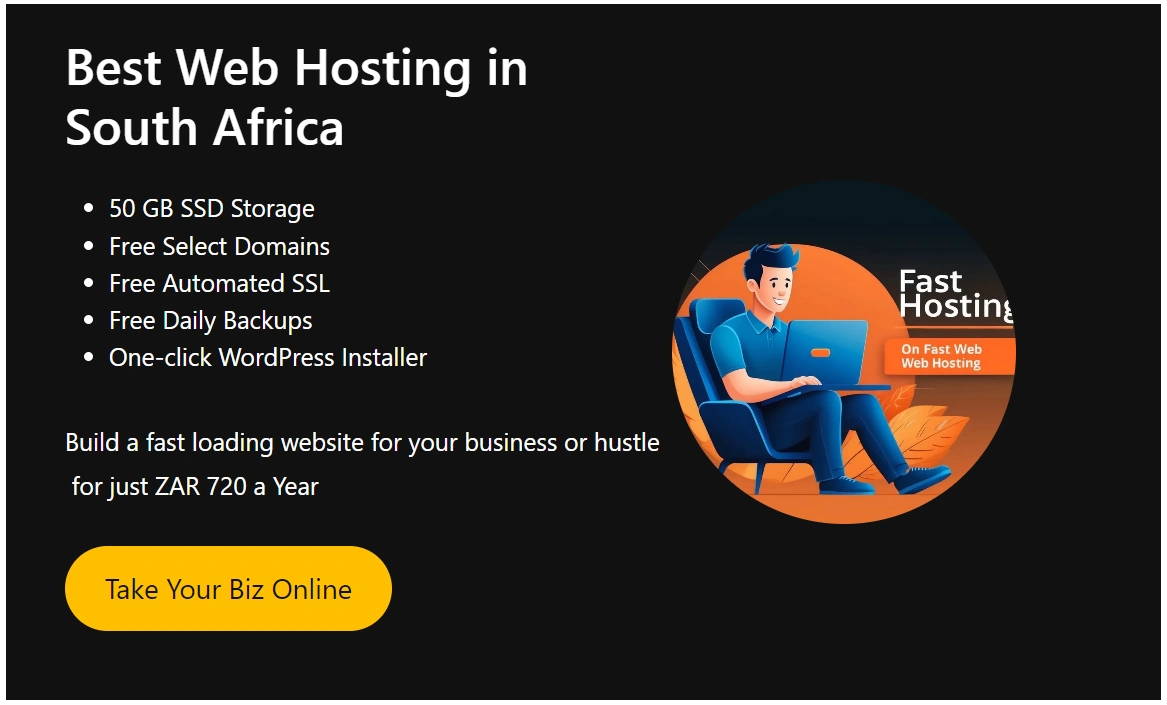Last updated on April 9th, 2024 at 08:29 am
South Africa’s high unemployment and tight job market makes starting a business highly appealing.
However, limited access to funding remains a key barrier for aspiring entrepreneurs.
The good news is, numerous viable small business opportunities in South Africa require minimal start-up capital.
By keeping overheads low, leveraging technology, and tapping into proven ideas, you can launch and grow an enterprise on a shoestring budget.
This article covers 21 fantastic business concepts suited for the budget-conscious to start and run on their own. We also highlight key tips to further lower costs.
So read on to unlock your startup potential today!

Table of Contents
How much do you need to start a business in South Africa?
To start a business in South Africa, there are various legal requirements and costs to consider.
All businesses in South Africa are required to register with the South African Revenue Service (SARS) and obtain an income tax reference number within 60 days of starting operations.
The cost of registering a company and reserving a company name is just R125 and R50, respectively.
Additionally, entrepreneurs may face challenges related to high costs of business compliance, regulatory frameworks, and access to capital.
Carefully consider these factors and ensure compliance with the legal and regulatory requirements when starting a business in South Africa.
How about capital?
On the good side, there are no minimum capital requirements to form a company in South Africa.
However, access to capital can be a challenge for entrepreneurs in South Africa.
Entrepreneurs must be able to convince investors to raise capital for their start-up, which can be challenging as they are trying to sell something that does not yet exist.
Additionally, many entrepreneurs struggle to get funding, which is predicted to be a challenge to the growth of small businesses.
How to calculate the capital needed for a business in South Africa
To calculate the capital needed for a business, you can follow these general steps:
- Estimate Startup Capital: Compute the total startup capital by adding up the capital needed prior to launch and the capital required to fund the cash deficit. This includes funds for any expenses to be incurred before launching the company and capital required after launch to run the company until it reaches positive cash flow.
- Determine Working Capital Needs: To determine working capital needs, create projections for accounts receivable, inventory, and accounts payable. Compare current, actual costs to your projections and then subtract the increase in current liabilities from the increase in current assets to determine your working capital needs.
- Identify Startup Expenses: Add up your one-time and monthly expenses, such as office space, equipment, supplies, communications, utilities, licenses, and permits, to get a good picture of how much capital you’ll need and when you’ll need it.
- Utilize Calculators: There are various online calculators available to help estimate capital needs, such as the Current Ratio calculator for working capital requirements.
Carefully estimate the capital needed for a business to ensure preparedness, conduct a break-even analysis, secure loans, and attract investors.
Additionally, creating a formal report of expected startup costs in a clear and easy-to-understand format can be beneficial when seeking funding.
If after this it comes down to small capital, here are some of the best small capital business ideas in South Africa.
1. Online Businesses Small Capital Business Ideas in South Africa
The internet has massively reduced distribution, marketing and infrastructure costs – making it easier to start businesses from home.
Here are some top online ventures you can launch on a small capital in South Africa:

1.1. Dropshipping Stores
Sell products in demand without holding inventory. Source items wholesale from manufacturers when customers order via your online store. Use platforms like Shopify for the website, payment and shipping setup. Focus on niche offerings with high margins.
Read also:
- Dropship Products South Africans Can’t Get Enough Of
- Does Dropshipping Work in South Africa?
- What is Dropshipping in South Africa? How Does It Work?
- How To Do Dropshipping in South Africa For Free
1.2. Blog Monetization
Start a blog sharing your interests and monetize with display ads. Writing content and driving traffic are your main upfront investments. Later incorporate affiliate links, sponsored posts, online courses and consulting services as earnings grow.
1.3. Freelance Services
Offer content creation, graphic design, web development, digital marketing, data entry and more as a freelancer on sites like Fiverr and Upwork. Use profile customization and gig strategizing to compete in your niche.
2. Food Related Small Capital Business Ideas in South Africa
Food is an essential offering that sells in good times and bad. Minimize costs with specialized offerings suited for self-startup.
2.1 Home Baking
Bake cakes, cookies, pies, pastries or artisanal bread to supply your community. Start at home using your own oven/ equipment and specialized ingredients. Later invest in commercial equipment for added capacity.
2.2. Food Stalls & Vending
Set up a low cost food stall or cart for on-the-go offerings like hotdogs, snacks, coffee, cold drinks. Target high traffic areas like malls, parks and events. Keep overheads low by production offsite in certified kitchens.
2.3. Catering
Provide catering services for functions and events starting small with basic portable equipment. Offer specialized menus around dietary preferences like Halaal, Kosher, vegetarian or vegan.
3. Personal & Home Services Small Capital Business Ideas in South Africa
Leverage your skills and knowledge to provide specialized services improving quality of life right at people’s doorsteps:
3.1. Home Healthcare
With an aging population and increased chronic diseases, provide supportive health services like blood pressure monitoring, basic healthcare, companionship and daily living assistance to those needing care at home. You can also facilitate doctor’s appointments, clinic visits etc. Start solo and later grow your caregiver pool.
3.2. Errands & Cleaning
Help pressed professionals maintain their households and run errands by offering home cleaning services, laundry/ ironing services, grocery shopping help etc. Provide flexible booking by hour or task. Manage operations using productivity tools and chat platforms.
3.3. Handyman Services
Offer installation, repair and maintenance services for homes and small businesses as an all-round handyman focusing on plumbing, electrical, woodwork and painting jobs. Start as a one man show with a basic toolkit and portfolio site.

4. Retail, Rentals and Reselling Small Capital Business Ideas in South Africa
Tap into South Africa’s buy-and-sell culture with inventories sourced affordably from manufacturers, auctions and sales.
4.1 Streetwear & Accessories
Import on-trend urban, leisure and athletic clothing and accessories for sale locally. Start online like on Instagram or take portable racks/pop up stalls to markets and events. Adapt quickly based on customer feedback.
4.2. Equipment Rentals
Offer heavy equipment like tools, catering supplies, event items (chairs, tents etc), electronics or camping gear for rental. Start with your own inventory and expand based on utilization rates and demand data. Adjust pricing for healthy margins factoring in costs, maintenance and risks.
4.3. Refurbished Goods
Source affordable second hand or used inventory like furniture, electronics or appliances, refurbish items to working order and resell online or via classifieds for income. Focus on quick turnaround niche items. Provide pick up and delivery.
5. Transport & Delivery Small Capital Business Ideas in South Africa
Mobility is greatly valued in South Africa, opening options for smart transport startups needing limited initial investment:
5.1. Transport Services
Run an affordable shuttle service in South Africa using your own vehicle to provide rides for commuters, school children, airport/ long distance drop offs.
Get licensed and comply with safety, maintenance and insurance regulations before taking bookings. Start small and reinvest revenues to get additional vehicles to meet demand.
5.2. Courier Service
Collect and distribute parcels across different routes using your personal vehicle. Tie up with merchants for delivery contracts. Provide track and trace visibility. Adapt routes and schedules to optimize efficiency.
5.3. Towing Services
Offer tow truck services in South Africa – from roadside assistance and jump starts, to moving vehicles between locations. Start with one multi-purpose tow truck focusing on reliability and safety. Market to locals via ads, partnerships and search visibility.

Best ways to raise business capital in South Africa
Now that we’ve looked at some of the best smal capital business ideas in South Africa, let’s talk about raising capital.
To be honest, there’s no single “best” way to raise business capital in South Africa.
Reason?
Well, the ideal approach depends on several factors like your business stage, industry, and funding needs.
However, here’s a breakdown of some popular options:
Traditional Methods:
- Bank loans: These offer relatively stable interest rates and long repayment terms but require a strong business plan and good credit history.
- Government grants and incentives: South Africa has various programs targeted at specific industries or demographics, so research relevant options.
- Angel investors: Individuals with high net worth who invest in early-stage businesses in exchange for equity. Look for investors within your sector for better understanding and connections.
Alternative Funding:
- Bootstrapping: Self-funding through profits, savings, or asset sales. Great for initial stages or businesses with modest needs.
- Crowdfunding: Platforms like Kickstarter and Thundafund allow raising capital from a large group of individuals. Strong pitch and mass appeal are essential.
- Venture capital (VC): VC firms invest in high-growth businesses with significant potential. This route requires a polished business plan and traction.
- Incubators and accelerators: Programs offering mentorship, workspace, and access to networks and funding opportunities. Ideal for early-stage startups.
Other Considerations:
- Debt vs. equity: Loans require repayment, while equity investors share ownership and profits. Choose based on your risk tolerance and growth plans.
- Personal guarantees: Banks might require personal guarantees for larger loans, increasing your financial risk.
- Legal and regulatory requirements: Different funding options have varying legal and regulatory implications, so seek professional guidance if needed.
Here are some additional resources to help you pick the best options:
- Investment Network South Africa: https://www.investopedia.com/articles/personal-finance/111115/how-raise-seed-capital-and-grow-your-startup.asp
- Founders Factory Africa: https://www.foundersfactory.africa/
- Prosper Africa: https://www.prosperafrica.gov/
Remember, thorough research, preparation, and a strong business plan are crucial for attracting any form of investment.
Consider your specific context and explore different options to find the best fit for your South African business venture.
Key Takeaways
- Numerous viable startup ideas in South Africa require little seed funding, making entrepreneurship accessible
- Online businesses in South Africa provide affordable infrastructure through technology
- Food can be a recession-proof category with minimal inventory models
- Leverage existing assets and skills to provide localized personal services
- Tap into buy-and-sell culture via smart sourcing and sales
- Keep costs low through focus – narrowing offerings, locations and target segments
- Build capabilities over time by reinvesting revenues into growth
Read also: #9 Trending Small Businesses in South Africa


